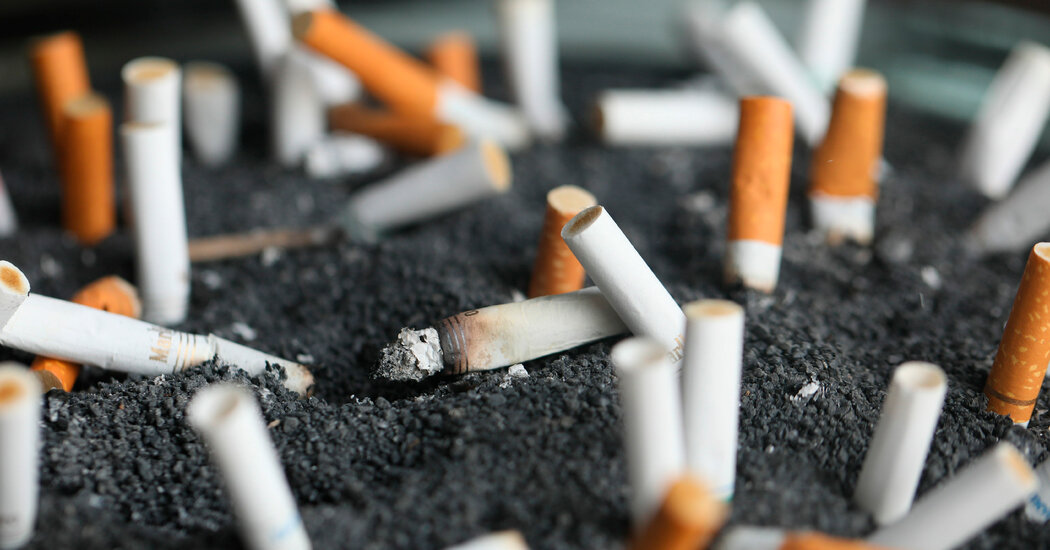In the final days of the Biden administration, the Food and Drug Administration is seeking White House approval to propose a drastic reduction in the amount of nicotine in cigarettes, a longstanding goal of public health experts that has faced stiff opposition from the powerful tobacco lobby.
The F.D.A. submitted the proposal to the Office of Management and Budget only on Tuesday, a sign that the move was perhaps more wishful and symbolic than realistic for a White House juggling many late-term agenda items. And traditionally, the budget office’s review of agency proposals can take months.
“I think it’s a milestone in progress toward the single most game-changing tobacco regulatory policy, in terms of lives that could be saved, that F.D.A. could ever do,” said Mitch Zeller, a former director of the agency’s tobacco center. “Having said that, it’s only a proposed rule, and we’re obviously in the waning days and weeks of an outgoing administration.”
Even if the F.D.A. receives clearance from the White House to advance the proposal, whether it can survive once President-elect Donald Trump takes office in January is unclear given the sustained opposition from the industry. The tobacco lobby was also a significant donor to Mr. Trump’s campaign; the cigarette maker Reynolds American had given $8.5 million to his main super PAC by late October.
Mr. Trump is known to personally oppose cigarette smoking, but has not weighed in recently on agency issues like nicotine levels in cigarettes. He has chosen Robert F. Kennedy Jr. as his likely nominee to run the nation’s top health agency, and Mr. Kennedy has railed against federal subsidies given to tobacco growers, saying they eclipse those sent to other farmers who grow fruits and vegetables. He listed the problem as evidence that “we are just poisoning” people and contributing to chronic disease.
“It makes no sense if we want a healthy country,” he said in a speech in August.
A World Health Organization study estimated in 2023 that the U.S. Agriculture Department allocated $437 million in subsidies to tobacco farmers from 2015 through 2020.
